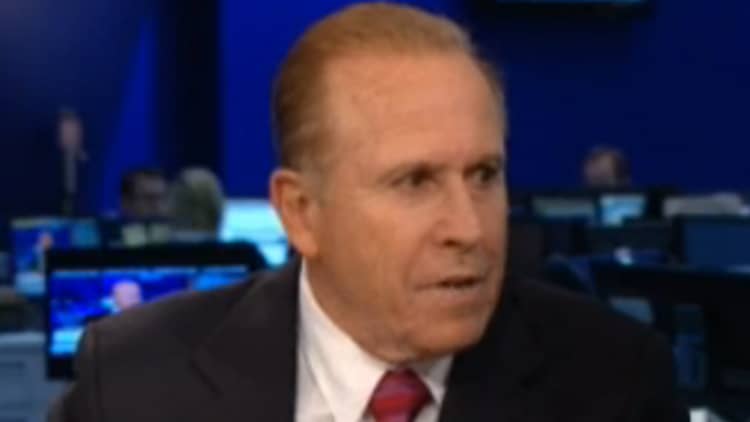
Active versus passive investing—it's not a debate to stir the masses on Main Street, but on Wall Street it's a rivalry of huge magnitude. Now value investor Bob Olstein is emerging as a prominent voice in this debate, calling backers of the index strategy "misinformed."
In his recent shareholder letter, Olstein charges that the investing public has been misled by well-regarded academics—pinpointing Eugene Fama's Nobel Prize win in 2013 for his advancement of the efficient market hypothesis as the trigger for the "increase in articles based on faulty logic, a false sense of security and a herd mentality in investing in passive S&P 500 index funds."
The efficient market hypothesis is the belief that any point in time, prices for individual stocks have correctly discounted all of the facts necessary to correctly value a company. Olstein believes by awarding Fama such a prestigious award, it sends a message that passive funds are the safest way to go.
Read MoreInvestors, it's not your fault you underperform
"Many ordinary investors led by financial advisors are committed to the S&P 500 index automated strategy of buying stocks without considering the underlying value of the companies. Investors whobelieve index investing is completely safe are misinformed," he wrote.
Since its inception at year end 1995, Olstein's All Cap Value Fund has outperformed the S&P 500 for 12 years in that period. If you invested $1 million in the fund from the start, you would have accrued $7.6 million today after fees, versus $5 million if you invested in the S&P 500 with no fees.
Olstein worries that the overvaluation of individual stocks in the S&P 500 index is starting to look similar to the "nifty fifty" of the early 1970s, which ended badly after many companies became overvalued as a result of mania-type investing.
There are plenty who disagree with Olstein, though. Even renowned investors like Warren Buffett are sounding out for the passive strategy. Buffett has recommended his heirs put their money in index funds. As he said in his last investor letter:
"My advice to the trustee couldn't be more simple: Put 10% of the cash in short-term government bonds and 90% in a very low-cost S&P 500 index fund. (I suggest Vanguard's.) I believe the trust's long-term results from this policy will be superior to those attained by most investors — whether pension funds, institutions or individuals — who employ high-fee managers."


